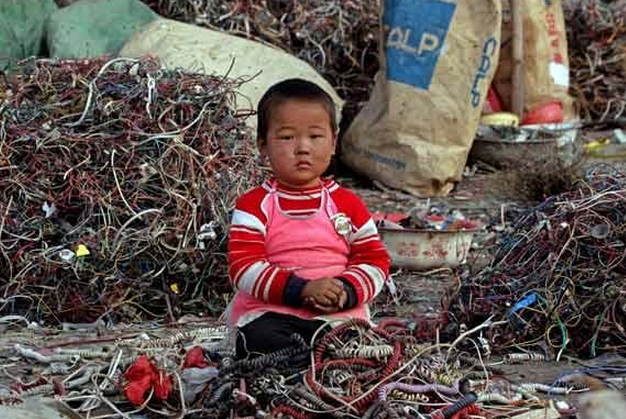
We hate this picture. From the West Bank in Israel all the way to China, children are picking through e-waste for pennies or dollars a day. There is no way to trace the polluters, maybe, until now.
Almost every business has promised to reduce its carbon footprint at some point in its existence. However, very few have delivered on their promises, and not even 100% of it was completed. The reason is that simply promising to deliver on those promises was enough to get the environmental activists to calm down and stop boycotting their products, so we can say that it was more of a PR stunt than an actual commitment to making something better.
Environmental activists themselves are starting to run out of ways to oppose these companies especially if they are producing daily necessities.
One strategy that was tried and tested in the past was to simply not purchase anything produced by these specific brands, but there were always mishaps and mistakes. People would accidentally purchase these products without even realizing it. Multiply that accident by a couple of million consumers and you get billions of dollars in revenue for those specific brands.
Therefore, it’s not like they will lose anything even if they outright refuse to comply with the activists.
Fortunately for everybody, there is a new technology on the block that can help activists be more attentive towards their shopping habits.
The blockchain becomes the main tool against pollution
Although it’s pretty rich talking about blockchain technology doing anything for the environment, considering how much pollution the mining farms produce on a daily basis, it’s still important to note how exactly activists can use it to boycott these companies.
You see, the blockchain is an amazing database system that allows for almost everybody involved in the industry to view any changes made within the smart contract. What this means is that should the company make any changes, everybody involved would be able to see them, thus hiding them would be almost impossible.
The blockchain technology allows people to track their products, all the way from the raw materials to the shelves in front of them. This way, the consumer is able to distinguish the brand, where it got the raw materials, where the manufacturing took place and where the products were packaged. This way, they can do additional research on the company’s activities in specific regions, and if it turns out to be not environmentally friendly, then refrain from buying those products.
In the world of capitalism, it’s best to talk with money than with words.
How the trend started in Canada
If there are people going against polluting in the world, most of them are definitely in Canada. The country has been extremely carbon-conscious in recent years as well, passing legislation which would impose hefty fines on manufacturers producing more pollution than they could potentially clean up.
However, the idea of using the blockchain was actually derived from the country’s popular gaming industry.
Canadians were starting to go deeper and deeper into gaming online, which was starting to popularize the use of cryptocurrencies. The citizens liked the idea so much that some of them even converted to regular crypto investors. Over time, the trend spread to other industries as well, and voila, we have a carbon-neutral industry based on the blockchain.
According to the general manager of Playamo Canada, the transition from gaming to heavy manufacturing industries was gradual.
“When we first introduced the blockchain on our platform, everybody was extremely excited. The culture of investing in cryptos was already very popular in Canada, so we had to do very few educational guides for our users.
Over time, we started to notice that some of our clients were introducing the blockchain to their own businesses. Things like e-commerce stores, investment companies, and various other fields.
Only recently did we find out that blockchain had made its way to manufacturers and we were very positively surprised. The moment that happened we decided to double down on our promotion and so far it’s been going great.”
What types of tracking is already available?
There are not too many options right now, but the retail industry is starting to adopt the technology due to the transparency it offers for them as well. Currently, the tech has been applied to wine and designer clothes. Hopefully, it will be applied to daily necessities that we buy all the time.
